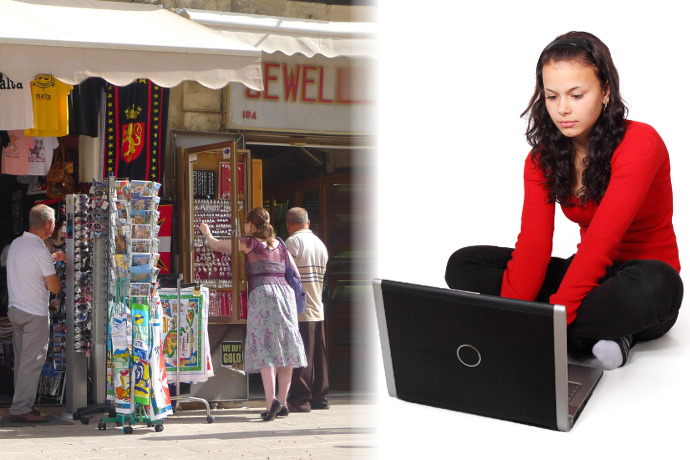
Younger retail shoppers are driven more by personalization than older people, according to Consumer Shopping Habits—The Generation Gap, a study by BRP, sponsored by Manhattan Associates. Not surprisingly, the younger generations are also more attracted by a retailer’s technology.
While the shopping journey varies depending on the customer, product and even season, there are similarities within generational groups. Digital Consumers (ages 18-37) have higher expectations for the retail experience than traditional consumers (ages 38+) and embrace the use of technology to make their research and buying process more convenient. Traditional consumers are more focused on the basics of finding their desired product at the right price.
“As retailers plan their in-store, online and mobile shopping experience strategies, it is imperative that they align with the desires of their target audiences,” said David Naumann, vice president of marketing, BRP Consulting. “Making every experience a positive one is also key, as nearly two-thirds of ALL consumers will stop shopping at a retail brand after one unsatisfactory experience.”
Digital consumers also approach brick-and-mortar stores very differently than traditional consumers. For example, digital consumers tend to want in-store technology that enables personalized shopping. Sixty-five percent want personalized recommendations, while 61% want a curated selection of products from in-the-know staff members. Meanwhile, traditional consumers are more interested in technology that helps ensure product availability – 63% want associates to have the ability to order out-of-stock products and 60% want the ability to search in-store inventory availability.

Below are key findings based on generation groups.
DIGITAL CONSUMERS (ages 18-37)
As Digital Consumers research products, they seek out consumer reviews to make more educated purchase decisions. When choosing a store, 65% want the ability to receive personalized recommendations and 65% prefer the ability to pay via a mobile wallet or retailer app. Receiving merchandise quickly is important with same day delivery a reason to choose a store for 77% of these consumers. Digital Consumers are more likely than Traditional to share feedback on social media for both exceptional and unsatisfactory shopping experiences.
TRADITIONAL CONSUMERS (ages 38+)
Traditional Consumers focus on the basics when they shop – product availability and competitive pricing. While shopping for products, 63% choose a store based on the associates’ ability to order out of stock products. While they are more tolerant on the timing of deliveries, 86% will choose a store with free delivery over one that doesn’t offer this service. Traditional Consumers rarely share feedback on social media for any shopping experience, but for unsatisfactory experiences, 64% will contact the retailer to share their dissatisfaction.












